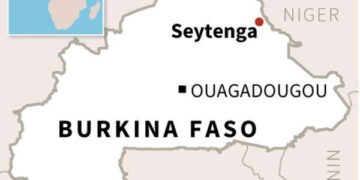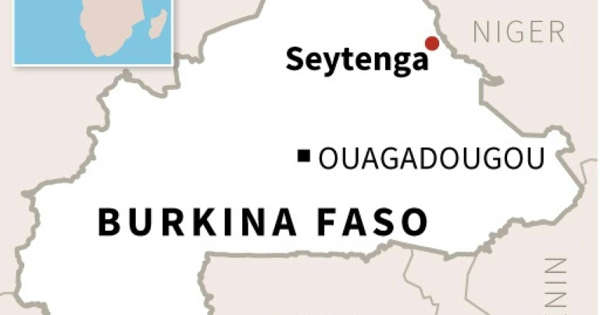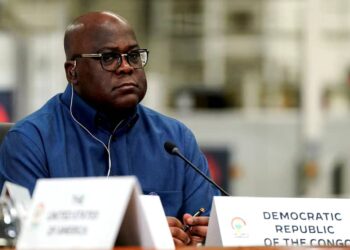By Ebi Kesiena
Burkina Faso has begun three days of national mourning after suspected jihadists killed at least 50 civilians in one of the worst attacks since the military seized power in January.
Lieutenant Colonel Paul-Henri Sandaogo Damiba, issued a decree ordering the entire country to observe the period of mourning until midnight on Thursday.
The landlocked Sahel state is in the grip of a seven-year-old jihadist insurgency that has claimed more than 2,000 lives and forced some 1.9 million people to leave their homes.
“Flags will be hung at half-mast on public buildings and in Burkina Faso’s representations overseas,” said the decree, banning celebrations and recreational gatherings.
The attack targeted the village of Seytenga in the Sahel region overnight Saturday. On Monday, the government said the army had found 50 bodies and warned that the toll may rise.
Villagers who escaped a jihadist massacre in northern Burkina Faso said Tuesday they had been left without any protection against the attackers after government forces pulled out of the area.
Over a period of hours on Saturday evening, armed men moved unhampered through the village of Seytenga, shooting, burning and looting, they said.
The EU warned that the attack may have left “more than 100 civilian victims” and condemned the incident, calling for “light to be shed on the circumstances of this killing”.
“The method used by the terrorist group that carried out the attack, namely the systematic execution of anyone they encountered in the village, is appalling”, EU foreign policy chief Josep Borrell said.
Damiba’s decree described the attackers “as unidentified armed individuals”.
Seytenga saw fighting last week that killed 11 gendarmes, prompting a military operation that the army said led to the deaths of around 40 jihadists.
Burkina Faso’s insurgency has been concentrated in the country’s north and east, led by assailants suspected to have links with Al-Qaeda or the Islamic State group.
In January, colonels angered at failures to roll back the conflict ousted the elected president, Roch Marc Christian Kabore, in a military putsch.
Damiba, the new strongman, immediately vowed to make security his key priority.



































